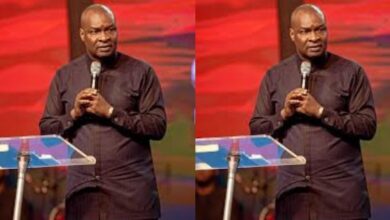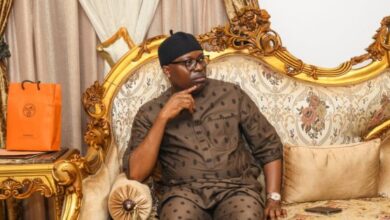Mudashiru Obasa Biography: The Rise, Scandal, and His Dramatic Fall
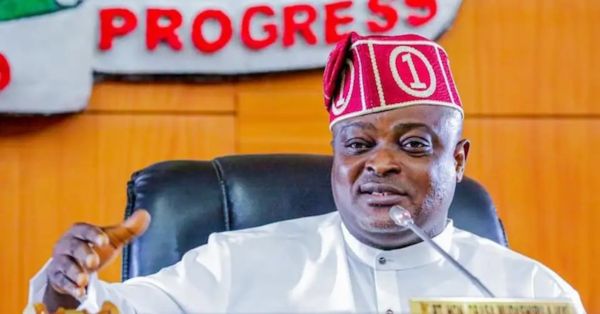
Mudashiru Obasa Biography: The Rise, Scandal, and His Dramatic Fall: Power in politics is a fickle thing—one day you’re at the top, the next, you’re fighting to salvage your legacy.
Few stories illustrate this better than that of Mudashiru Ajayi Obasa, the once-untouchable Speaker of the Lagos State House of Assembly. For nearly a decade, he wielded immense influence, shaping laws, controlling budgets, and even defying governors. But on January 13, 2025, his reign came to a crashing halt.
In a swift and decisive move, 30 out of 40 lawmakers voted to remove him, citing gross misconduct, financial mismanagement, and abuse of power. His deputy, Mojisola Meranda, was immediately sworn in as his replacement.
How did a man who dominated Lagos politics for 18 years fall so spectacularly? Was it his alleged corruption, his public clashes with governors, or his arrogance that sealed his fate?
Let’s dive deep into the controversial, dramatic, and ultimately tragic political career of Mudashiru Obasa.

Early Life: From Agege Streets to the Halls of Power
Born on November 11, 1972, in Agege, Lagos, Obasa’s journey began in humble surroundings. He attended St. Thomas Aquinas Primary School in Surulere before moving to Archbishop Aggey Memorial Secondary School in Mushin.
Unlike many Nigerian politicians who flaunt foreign degrees, Obasa earned his Law degree from Lagos State University in 2006. This local grounding helped him build a strong grassroots connection, a factor that would later fuel his political rise.
Political Ascension: The Making of a Kingmaker
Obasa’s political career kicked off in 1999 when he was elected as a councillor in Agege under the Alliance for Democracy (AD). By 2003, he had secured a seat in the Lagos State House of Assembly, representing Agege Constituency I.
Key Political Milestones:
- 2007, 2011, 2015, 2019, 2023 – Re-elected consecutively, making him one of Lagos’ longest-serving lawmakers.
- 2015 – Became Speaker of the Lagos Assembly, a position he held (with a brief interruption) until 2025.
- Loyalty to Tinubu – His unwavering allegiance to Bola Tinubu’s political machine earned him protection and influence.
But power, as they say, corrupts—and absolute power corrupts absolutely.
The Scandals: Corruption, EFCC, and a N17 Billion “Gate”
Obasa’s tenure was marred by relentless corruption allegations. Here are the most explosive ones:
1. The N17 Billion Assembly Gate Scandal
Reports claimed Obasa approved N17 billion for renovating the Lagos Assembly complex, including an outrageously expensive gate. Critics called it a brazen theft of public funds.
2. N10 Million Monthly Stipend for His Wife
An investigation revealed that Obasa allegedly funneled N10 million monthly to his wife under the guise of a “gender empowerment” program.
3. EFCC Interrogation & Feigned Illness
In October 2020, the Economic and Financial Crimes Commission (EFCC) grilled Obasa over money laundering and fraud. Sources claimed he pretended to be sick to avoid further questioning.
Despite these scandals, Obasa denied everything, blaming “enemies of progress.” But the allegations stuck—and they would later contribute to his downfall.
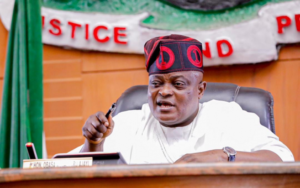
The #EndSARS Controversy: “We Won’t Mourn Miscreants”
During the 2020 #EndSARS protests, Obasa made a shocking statement on live TV:
“The Lagos State House of Assembly will not acknowledge the death of miscreants at the hands of the police.”
This callous remark, referring to victims of the Lekki Toll Gate shooting, sparked nationwide outrage. It painted Obasa as insensitive and authoritarian—a perception that haunted him for years.
The Final Straw: Clashing With Governors & Overplaying His Hand
Obasa’s biggest mistake? Underestimating Lagos governors.
1. The Battle With Ambode
During Akinwunmi Ambode’s tenure (2015-2019), Obasa blocked key budgets and policies, creating a toxic power struggle. Many believed he was acting on Tinubu’s orders to undermine Ambode.
2. Sanwo-Olu’s Revenge
When Babajide Sanwo-Olu became governor, Obasa continued his hardball tactics:
- Rejected 17 out of 39 commissioner nominees sent by Sanwo-Olu.
- Mocked the governor publicly, suggesting he was more qualified to lead Lagos.
This open disrespect angered the APC leadership, including Tinubu himself.
The Dramatic Impeachment: How 30 Lawmakers Ended His Reign
On January 13, 2025, the Lagos Assembly convened an emergency session—without Obasa.
The Charges Against Him:
- Financial mismanagement (N17B gate scandal, wife’s allowance).
- Authoritarian leadership (intimidating fellow lawmakers).
- Chronic absenteeism (frequently missing sittings).
- Disrespect to Governor Sanwo-Olu.
Within hours, 30 lawmakers voted unanimously to remove him. His deputy, Mojisola Meranda, took over immediately.
Obasa’s Reaction: “This Is Illegal!”
Obasa fought back, filing lawsuits to challenge his removal. But the damage was done—his political career was in ruins.
The Speaker Who Would Be Governor
Let’s not forget—Obasa had his eyes on the big prize: the Lagos governorship.
During a controversial speech at the 2025 budget presentation, he threw open jabs at Governor Sanwo-Olu, suggesting he was more qualified to govern.
“Those who live in glass houses must not throw stones,” he said, in what many viewed as a declaration of intent.
That speech didn’t just ruffle feathers—it set fire to longstanding political loyalties. Party leaders and loyalists alike viewed it as a step too far, a public embarrassment that needed correction. Rumor has it that President Bola Tinubu himself had to intervene, allegedly warning Obasa to dial back the hubris.
But by then, it was too late.
Return of the King? Obasa’s Shocking Comeback
Now here’s where the story gets even crazier.
Just two months after his impeachment, Obasa was reinstated as Speaker in March 2025. The details are still murky, but his swift return stunned observers and sent political analysts scrambling for answers.
How does a man accused of so many wrongs, publicly disgraced and politically dismissed, make a comeback that fast? The answer likely lies in the very thing that got him to the top in the first place: relationships, loyalty, and raw political maneuvering.
He also challenged his impeachment in court, suing the Assembly, Mojisola Meranda, and 36 lawmakers for what he called an unconstitutional removal. Whether it was legal acumen, political pressure, or sheer force of influence, Obasa’s reemergence proved that in Nigerian politics, nothing is permanent—not even disgrace.
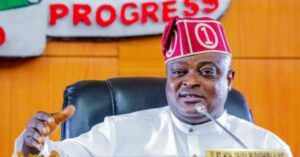
Conclusion: A Cautionary Tale for Nigerian Politicians
Mudashiru Obasa’s story is a classic rise-and-fall political drama. He rose from Agege streets to become Lagos’ most powerful lawmaker—only to be brought down by greed, arrogance, and betrayal.
Key Lessons:
✔ Power is temporary—abuse it, and you’ll lose it.
✔ Loyalty in politics has limits—even Tinubu couldn’t save him.
✔ Scandals have consequences—the EFCC may still come knocking.
Will Obasa make a comeback? Or is this the end of his political journey? Only time will tell.
But one thing is certain: Lagos politics will never forget the name Mudashiru Obasa.
Read: Sir Siminalayi Fubara: The Rise, Fall, Controversial Suspension and the Future

